 By: MOFD Staff
By: MOFD Staff
There are lots of options for those interested in pursuing a Master of Finance degree. Finance is a thriving career track. It attracts ambitious individuals to large companies ranging from Silicon Valley to Wall Street. Students who want to break into the industry at a higher than entry-level position often choose to pursue a graduate degree in:
- finance
- financial engineering,
- business administration
If you’re interested in enrolling in such a program, then the following list is sure to be of interest. We’ve compiled a selection of the 30 best Master of Finance degree programs in the U.S.
Ranking Methodology
To come up with our ranking of the top Master of Finance degrees, we began by making a list of more than 50 Master of Finance and M.B.A. in Finance programs. To narrow down our list to the 30 best programs, we used the following points system.
Annual Graduate Tuition (Estimate):
Under $70,000 — 1 point
Under $60,000 — 2 points
Under $50,000 — 3 points
Under $40,000 — 4 points
Under $30,000 — 5 points
Under $20,000 — 6 points
Under $10,000 — 7 points
Annual Percentage of 20-Year Net Return on Investment (ROI):
0-2% — 1 point
3-4% — 2 points
5-6% — 3 points
7-8% — 4 points
Above 9% — 5 points
National Recognition:
Note: To ensure consistency, we consulted only those applicable rankings produced by:
- Forbes (The Best Business Schools List)
- U.S. News & World Report (Best Business Schools)
- The Princeton Review (Best MBA for Finance)
- QS World University Rankings (Masters in Finance Rankings).
Top 100 — 1 point
Top 50 — 2 points
Top 40 — 3 points
Top 30 — 4 points
Top 20 — 5 points
Top 10 — 6 points
Top 5 — 7 points
Additional Points:
Online Option — 1 point
Part-Time Option — 1 point
Master of Finance Degree — 2 points
Finance Concentration or Specialization Only — 1 point
Please note, in the case of varying information (difference in tuition for residents and non-residents, for example), points were allocated based on the highest number of points possible. Ties were broken at the discretion of the editors.
30. Villanova University
 Master of Science in Finance
Master of Science in Finance
Villanova, Pennsylvania
Points: 11
Average Annual Tuition: $20,506
School Profile
Villanova University’s Master of Science in Finance (MSF) degree program offers graduate students a solid foundation in finance and today’s financial industries. It’s ideal for both recent grads and those with a few years of real-world experience. The MSF at Villanova spans two semesters of intensive courses on subjects like investment management and statistics. The program is available full-time or part-time. It’s fully recognized by the Chartered Financial Analyst (CFA) Institute University Recognition Program.
29. Creighton University
 Master of Finance
Master of Finance
Omaha, Nebraska
Points: 12
Average Annual Tuition: $16,128
School Profile
Creighton University’s Master of Finance (M.Fin) degree program provides ambitious grad students with a deep understanding of financial industries. It’s available both online and on campus. The M.Fin degree at Creighton consists of 33 credit hours that can be completed in as few as two years. Students also have the option of completing a 48-credit, three-year dual degree in both finance and business administration.
28. University of Rochester
 Master of Science in Finance
Master of Science in Finance
Rochester, New York
Points: 12
Average Annual Tuition: $51,705
School Profile
University of Rochester offers a Master of Science in Finance that can be completed on either a non-internship track or an internship track. The latter is especially appealing to international students, as it allows them to stay in the United States for up to 36 months. The 14-course curriculum includes classes on:
- Core Statistics
- Python
- Corporate Governance
Interestingly, University of Rochester’s Simon Business School publishes three preeminent industry journals:
- the Journal of Financial Economics
- the Journal of Accounting and Economics
- the Journal of Monetary Economics.
27. University of Cincinnati
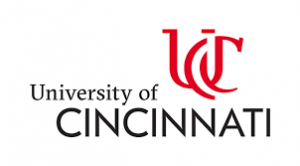 Master of Science in Finance
Master of Science in Finance
Cincinnati, Ohio
Points: 13
Average Annual Tuition: $12,790 (Ohio residents), $24,532 (out of state)
School Profile
University of Cincinnati’s Lindner College of Business was named “One of the most noteworthy up-and-coming schools” by U.S. News and World Report. It offers a Master of Science in Finance degree driven by excellence in a rigorous academic program. The curriculum combines a strong core of required courses. It has a variety of specialized M.B.A. and M.S. electives to provide a strong basis for a successful career in finance. A small student/teacher ratio of 4:1 offers instruction intensive enough for the program to be completed in as few as two semesters. Campus life is highly rated at UC – a nationally #1 voted recreation center and champion athletic teams strengthen UC’s reputation as a strong all-round school.
26. West Virginia University
 Master of Science in Finance
Master of Science in Finance
Morgantown, West Virginia
Points: 14
Average Annual Tuition: $10,134 (West Virginia residents), $13,428 (out of state)
School Profile
AACSB accredited, widely acclaimed, and affordable, West Virginia University’s College of Business offers a one-year M.S.-Finance degree. It prepares professionally qualified students for a rewarding finance career or CFA certification. It has a solid core curriculum supplemented by plenty of real-world experience. This results in a high academic satisfaction rating of 90%. As a WVU student of finance, you’ll enjoy courses that aptly combine:
- the study of micro and macroeconomics
- corporate responsibility
- ethics
- internship experiences
Academic pursuits at WVU are amply complemented by an active outdoor recreational lifestyle and community involvement. This engenders the team building and leadership skills required in an intensely competitive financial world.
25. Texas Tech University
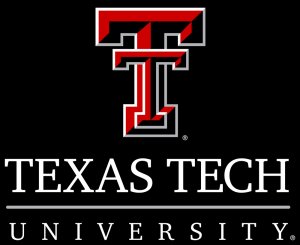 Master of Science in Finance
Master of Science in Finance
Lubbock, Texas
Points: 15
Average Annual Tuition: $5,958 (Texas residents), $13,428 (out of state)
School Profile
Located on a sprawling campus in west Texas, the Rawls School of Business at Texas Tech offers a Master of Science in Finance. The finance degree program aims to provide students with the skills and understanding necessary for success in the field of finance. To earn the degree, students must complete 36 units of courses like “Valuation” and “Options and Futures.” The course takes one year to complete, including summers.
24. Auburn University
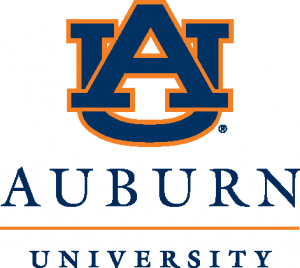 Master of Science in Finance
Master of Science in Finance
Auburn, Alabama
Points: 15
Average Annual Tuition: $9,828 (Alabama residents), $29,484 (out of state)
School Profile
The Master in Finance at Auburn’s Harbert College of Business offers a variety of courses in the principal areas of finance, including investments and markets. The program aims to produce qualified professionals for a range of employment opportunities in the financial sector. It has:
- a low student/teacher ratio
- a high average undergrad GPA
- a strong mentorship program that pairs each student with an accomplished mentor from the industry
This finance degree has a graduate employment rate of over 70%! That’s the fourth highest among the top 10 business schools in the country. Auburn’s M.S. in Finance is also available as an online degree program.
23. University of California – Irvine
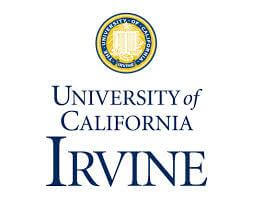 Master of Finance
Master of Finance
Irvine, California
Points: 15
Average Annual Tuition: $11,442 (California residents), $26,544 (out of state)
School Profile
Grad students at U.C. Irvine have the opportunity to earn a Master of Finance degree from the Paul Merage School of Business. The full-time program takes one year to complete. Participants may also continue with up to 36 months of Optional Practical Training. By graduation, students will be prepared to work in:
- real estate management
- asset and wealth management
- other finance-related careers
22. University at Buffalo (SUNY)
 Master of Science in Finance
Master of Science in Finance
Buffalo, New York
Points: 16
Average Annual Tuition: $11,310 (New York residents), $23,100 (out of state)
School Profile
The MS-Finance at University at Buffalo’s School of Management is targeted toward grad students keen on focusing their career on finance rather than a broad MBA. You can obtain further specialization by choosing a finance management track or a quantitative finance track. Each option offers an intensive curriculum on its focus areas. Admission to Buffalo’s finance degree program is only available in the fall. The degree takes three semesters to complete. It includes a four-week stint at the Summer Finance Institute. Here, students work in small groups with leading finance executives from major corporations. .
21. Louisiana State University
 Master of Science in Finance
Master of Science in Finance
Baton Rouge, Louisiana
Points: 16
Average Annual Tuition: $9,132
School Profile
Louisiana State University offers an MS-Finance program for finance/business undergrads keen to embark on a specialized finance career. It’s narrower and more focused in scope than an MBA. LSU’s MSF course plan can be adapted to reflect a student’s unique professional goals. An alternative JD/MS dual degree is also available for those wishing to pursue a finance career in the legal arena. If you’re concerned about your budget, financial assistance is available in the form of awards and assistantships to meritorious students. LSU’s academic experience is highly rated. An impressive 70% of students are already employed at graduation.
20. University of Arizona
 Master of Science in Finance
Master of Science in Finance
Tucson, Arizona
Points: 16
Average Annual Tuition: $11,938 (Arizona residents), $32,065 (out of state)
School Profile
University of Arizona’s Eller College of Management offers students a 12- or 16-month (non-thesis option) MS-Finance degree at its Tucson campus. This program has been accepted into the CFA Institute university recognition program. This makes it a lucrative option for those aiming at a future CFA career. There are even CFA exam scholarships awarded by merit. Contributing to UA’s graduate employment rate of 73% are:
- An experienced faculty
- small class sizes
- on-campus career services
Alumni have been placed with:
- Mattel
- Honeywell
- Walgreens
- other big names in the industry
19. University of Illinois Urbana-Champaign
 Master of Science in Finance
Master of Science in Finance
Champaign, Illinois
Points: 16
Average Annual Tuition: $14,997 (Illinois residents), $28,404 (out of state)
School Profile
The University of Illinois Urbana-Champaign offers a Master of Science in Finance degree. It’s in an environmentally sustainable, technologically advanced, platinum-rated business facility sponsored by the Chicago Mercantile Exchange. A challenging curriculum is spread over one academic year. It offers strong core courses complemented by electives in popular disciplines such as corporate finance and asset management. The MSF program has been named a CFA Program Partner, adding extreme value towards a future CFA certification. An impressive 89% of graduates are employed within six months graduation by industry giants such as:
- Bank of America
- Deloitte
- Morgan Stanley.
18. Vanderbilt University
 Master of Science in Finance
Master of Science in Finance
Nashville, Tennessee
Points: 17
Average Annual Tuition: $48,624
School Profile
- one-on-one career guidance
- on-campus employer interviews
- numerous networking opportunities with potential employers
What’s more, fun doesn’t have to take a back seat with more than 20 financial/business social organizations planning myriad events for all to enjoy.
17. University of Florida
 Master of Science in Finance
Master of Science in Finance
Gainesville, Florida
Points: 17
Average Annual Tuition: $10,770 (Florida residents), $27,335 (out of state)
School Profile
The oldest public university in the state, University of Florida has a multi-pronged graduate finance program. In addition to the MS-Finance degree, UF offers an MBA-Finance concentration, or an MSF/Juris Doctorate joint degree, depending on an incumbent’s:
- prior finance education
- experience
- individual career aspirations
It has a low student/teacher ratio of 10:1. It has a strong support network for graduates’ spouses and children (including three on-campus daycares) to ensure a highly satisfying academic experience. It has a solid graduate employment rate of over 75%. Grad students also have plenty of networking opportunities through:
- career fairs
- mentoring programs
- salaried internships.
16. Washington University in St. Louis
 Master of Science in Finance
Master of Science in Finance
St. Louis, Missouri
Points: 18
Average Annual Tuition: $54,250
School Website
Washington University in St. Louis offers a rigorous finance degree program that culminates in a Master of Science in Finance. Students may tailor their education to fit their future career goals by choosing one of four tracks:
- Corporate Finance and Investments
- Wealth and Asset Management
- Global Finance
- Quantitive Finance
Students receive career support throughout their time at Washington University in St. Louis, and even have real-world consulting projects to take part in in partnership with the Wells Fargo Advisors Center for Finance and Accounting Research.
15. University of Alabama
 Master of Science in Finance
Master of Science in Finance
Tuscaloosa, Alabama
Points: 18
Average Annual Tuition: $10,780 (Alabama residents), $30,250 (out of state)
School Profile
The Princeton Review ranks Alabama’s Manderson School of Business’ facilities as third-best in the country. The school’s motto is “Innovation. Relevance. Rigor.” This carries over to its one year MS in Finance, which equips its students to make sense of financial markets in a rapidly changing global economy. It has specializations in:
- financial policy
- financial risk strategy
- real estate
This MS program seeks to empower students with advanced expertise in:
- investments
- banking
- corporate finance
- financial engineering
The business school offers many amenities such as:
- high-speed Wi-Fi
- a technology lab with 24/7 access to databases
- digital multimedia classrooms, and more.
14. University of Maryland College Park
 Master of Finance
Master of Finance
College Park, Maryland
Points: 18
Average Annual Tuition: $13,158 (Maryland residents), $29,250 (out of state)
School Profile
Maryland’s Robert Smith School of Business is within walking distance of the nation’s capital landmarks. It equips grad students with the tools to succeed in the competitive world of modern finance. Its demanding MS Finance degree consists of core courses that provide a solid finance foundation. A large number of interdisciplinary electives provide the flexibility of specialization. Students gain practical experience by managing real investment funds and participating in experiential learning projects. An impressive 66% of graduates are employed at graduation, thanks to committed career services and a dedicated faculty.
13. University of Chicago
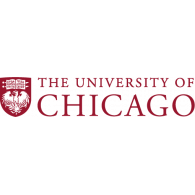 Master of Business Administration with a concentration in Finance
Master of Business Administration with a concentration in Finance
Chicago, Illinois
Points: 19
Average Annual Tuition: $60,300
School Profile
University of Chicago offers a Master of Business Administration with a concentration in finance. Some of the world’s leading finance scholars teach in this competitive program. It’s known worldwide for its business-related research and innovation. Speaking of research, grad students have access to several interdisciplinary centers where they can participate in:
- faculty research
- workshops
- conferences
Unlike some of Chicago’s other MBA degree programs, this one is full-time and on-campus only.
12. Georgetown University
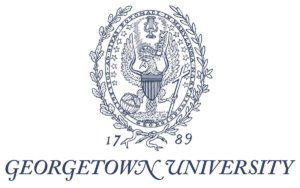 Master of Science in Finance
Master of Science in Finance
Washington, D.C.
Points: 19
Average Annual Tuition: $51,336
School Profile
Georgetown University is home to the McDonough School of Business, one of the top-rated business schools in the country. Georgetown’s Master of Science in Finance is available in both a full-time and part-time format. It can be completed in as few as 21 months. Regardless of a student’s choice of pace, six core courses and six electives are required to complete the degree. In the Capstone Global Consulting Project Residencies, students take part in two intensive team prep weekends.
11. Arizona State University
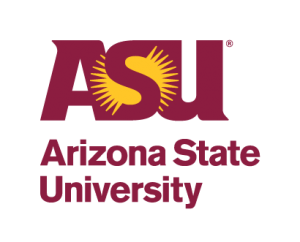 Master of Science in Finance
Master of Science in Finance
Tempe, Arizona
Points: 19
Average Annual Tuition: $11,720 (Arizona residents), $26,160 (out of state)
School Profile
Arizona State University offers a Master of Science in Finance degree program. Over the course of the program, students develop an expertise in corporate finance and asset or portfolio management. The degree consists of 32 credit hours, including a capstone course. It one academic year to complete. Grad students will be exposed to cutting-edge research and the years of real-world experience of their professors. The program’s curriculum is aligned with the CFA Program Candidate Body of Knowledge. Graduates of Arizona State’s finance degree program are ready to sit for the CFA exam at the time of graduation.
10. University of Wisconsin – Madison
 Master of Science in Finance
Master of Science in Finance
Madison, Wisconsin
Points: 20
Average Annual Tuition: $10,728 (Wisconsin residents), $24,054 (out of state)
School Profile
University of Wisconsin – Madison offers a Master of Science in Finance that’s specifically for Wisconsin undergraduates who have completed an economics major or any other major. The degree program consists of 27 credits and is to be completed in one year. Students also have the flexibility to customize their education with elective courses drawn from different business disciplines. For those who have completed their undergraduate coursework at an institution besides Wisconsin, the university also offers an MBA program with a specialization in applied security analysis.
9. University of Texas at Dallas
 Master of Science in Finance
Master of Science in Finance
Dallas, Texas
Points: 20
Average Annual Tuition: $13,874 (Texas residents), $27,796 (out of state)
School Profile
University of Texas at Dallas offers a Master of Science in Finance as part of its Naveen Jindal School of Management. The STEM-designated degree consists of 36 credits, and takes 12-24 months to complete. A cohort MS Finance is also available. It’s designed for those looking to develop their careers in professional finance and train for CFA certification. In either case, grad students learn the necessary skills and knowledge required to succeed in their financial careers.
8. Texas A&M University
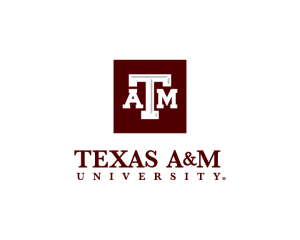 Master of Science in Finance
Master of Science in Finance
College Station, Texas
Points: 20
Average Annual Tuition: $6,677 (Texas residents), $18,700 (out of state)
School Profile
Mays Business School at Texas A&M offers a 10-month MS-Finance professional degree with an emphasis on practical financial skills and career preparation. Applied learning and networking play an important role in the non-thesis MSF curriculum. Students gain exposure to:
- a lecture series
- social interaction opportunities with industry leaders
- a high-profile Investment Banking program on Wall Street called iBank
The school provides financial aid in the form of graduate assistantships as well as merit scholarships awarded for CFA and CMT exams.
7. The University of Southern California
 Master of Science in Finance
Master of Science in Finance
Los Angeles, California
Points: 21
Average Annual Tuition: $46,272
School Profile
University of Southern California (USC) is the highest debuting new addition to our list of the best master’s in finance degree programs. Offered by the top-ranked Marshall School of Business, the M.S. in Finance at USC takes 16 months to complete. It is a full-time, on-campus option. No online or part-time flexibilities are offered. Upon completing the program, grads will have the necessary skills and knowledge to immediately be hired as analysts in the financial industry.
6. Indiana University – Bloomington
 Master of Science in Finance
Master of Science in Finance
Bloomington, Indiana
Points: 23
Average Annual Tuition: $9,501 (Indiana residents), $31,932 (out of state)
School Profile
Indiana University’s Kelley School of Business offers a full-time Master of Science in Finance that combines a student’s nonbusiness education with cutting-edge industry expertise. Besides the top-rated education one receives at IU, students are also able to take advantage of the university’s graduate career services department. It’s ranked #5 in the world for career services. This department is certainly part of the reason that 100% of IU grads are employed within three months of graduation. The M.S. in Finance at Indiana is also available online.
5. Rice University
 Master of Business Administration with a concentration in Finance
Master of Business Administration with a concentration in Finance
Houston, Texas
Points: 25
Average Annual Tuition: $48,791
School Profile
Named the #1 university business incubator in the world, Rice University’s Finance M.B.A. is a popular choice for graduate studies. RU’s strategic location in Houston, amidst the energy sector, lays the foundation for a strong business program. It’s enriched by several project-based learning and networking opportunities such as the Rice Business Plan Competition, the world’s largest and richest student start-up competition. Contributing to an impressive 85% employment rate at graduation are:
- Small classes
- a rigorous curriculum
- the annual Career and Internship Expo
Network with employers while enjoying a chili cook-off? There’s a way to mix business with pleasure at Rice University!
4. Columbia University
 Master of Science in Financial Economics
Master of Science in Financial Economics
New York, New York
Points: 27
Average Annual Tuition: $47,600
School Profile
Located in New York City, Columbia University might just be the perfect place for someone with Wall Street ambitions to pursue a master of finance degree. Columbia’s Master of Science in Financial Economics is a STEM-based program. It takes two years to complete. Students will get a rigorous training in all things finance and economics alongside PhD and MBA candidates.
3. University of Pennsylvania
 Master of Business Administration in Finance
Master of Business Administration in Finance
Philadelphia, Pennsylvania
Points: 29
Average Annual Tuition: $36,254
School Profile
The University of Pennsylvania’s Wharton School of Business offers a Finance major as part of its renowned MBA program. It has specializations available in:
- Banking
- Corporate Finance
- Portfolio Management
- International Finance
. A student/faculty ratio of 6:1 guarantees personalized education. More than 200 electives and 15 interdisciplinary programs offer flexibility and exposure toward your specific career goals. An impressive 86% of recent graduates find employment in the financial departments of:
- investment banks
- management consulting firm
- other commercial and non-profit institutions
For all its academic emphasis, UPenn offers a rich student life with more than 15 finance and business-focused campus organizations to choose from. Of course the cultural city of Philadelphia is within arm’s reach.
2. Massachusetts Institute of Technology
 Master of Finance
Master of Finance
Cambridge, Massachusetts
Points: 30
Average Annual Tuition: $53,450
School Profile
1. University of Texas at Austin
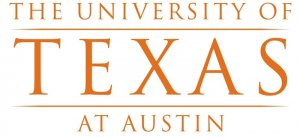 Master of Science in Finance
Master of Science in Finance
Austin, Texas
Points: 32
Average Annual Tuition: $11,998 (Texas residents), $22,966 (out of state)
School Profile
Topping our list of the best master’s of finance degrees is The University of Texas at Austin. It has a rigorous curriculum designed by an advisory council of industry leaders. UT-Austin’s McCombs School of Business offers a 10-month MS Finance program. It’s selectively open to students from all academic backgrounds with no previous work experience. After completing a core semester, students may choose a specialized curriculum path in:
- energy
- corporate finance
- asset management
92% of Texas MSF students graduate with job offers from industry powerhouses like:
- KPMG
- PWC
- Capital One
- Goldman Sachs
Experiential learning extends beyond the classroom with the university’s strategic location in the fastest growing city in the country.
Sources:
- Forbes (The Best Business Schools List)
- U.S. News & World Report (Best Business Schools)
- The Princeton Review (Best MBA for Finance)
- QS World University Rankings (Masters in Finance Rankings)
- College Navigator
- School Websites
Related Resources:
- 5 Benefits of a Finance Degree with a Minor in Economics
- How Are Finance and Economics Related?
- What is a Master of Economics Degree?
- What is a Master of Financial Economics Degree?
- What is the Difference Between a Master’s in Finance and a Master’s in Economics?
- 20 Most Affordable Online Finance Bachelor’s Options
- 30 Scholarships for Finance Majors
- Top 10 Affordable Master’s in Finance Online Degree Programs
- 50 Best Online Master of Finance Degree Programs
- Top 50 Most Affordable Online MBA in Finance Degree Programs
